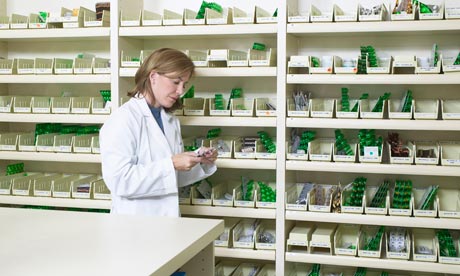
Girls as young as 13 should be able to walk into a high-street chemist and get the contraceptive pill if they want it, an evaluation of an NHS pilot scheme has concluded.
The pilot in south-east London was designed to offer the pill to women and girls over the age of 16 without the need to see a GP. Some young women might hesitate to visit the family doctor for contraception and might feel more comfortable at a pharmacy, where they would be less likely to meet somebody they know. Emergency contraception – the "morning-after pill" – is widely available at pharmacies.
But NHS south-east London found that girls under the age of 16, some as young as 13, also came to the pharmacy to ask for the pill.
An evaluation report of the scheme, revealed in Pulse magazine, says it has successfully reached young women who had not taken the pill before: 46% were first-timers. It recommends rolling out the scheme nationally "to shift activity out of GP practices" and extending the age group to cover 13- to 16-year-olds.
NHS south-east London said in a statement: "At this stage there are no plans to extend the scheme to under-16-year-olds in Southwark or Lambeth." NHS Manchester and NHS Isle of Wight are running pilot schemes that already provide services to the under-16s.
Under the Isle of Wight scheme running in 10 community pharmacies, any girl over 13 can get the pill, although under-16s are also referred to a safeguarding nurse.
Kevin Noble, the community pharmacy lead for NHS Isle of Wight, said it was discussing extending the scheme to all of the island's pharmacies. "It's a shame other schemes have shied away from providing the pill to under-16s," he said.
All the regions say that pharmacists will only give the pill to under-16s who meet what are known as the Fraser guidelines, set out by the judge in the Gillick case in 1985, brought by Victoria Gillick, a mother who wanted to stop under-16s being given contraception by their doctor without parental consent.
The guidelines require the pharmacist to ensure the girl is mature enough to understand advice and attempt to persuade her to tell her parents. The pharmacist must be sure she will continue to have sexual intercourse with or without contraception, and that without contraception, her health will suffer.
The Department of Health says it supports pharmacy access for under-16s with these safeguards in place. Pharmacists "should be fully satisfied young people understand all the issues before they prescribe any contraceptive, including encouraging the young person to talk to their parents", said a statement from the department.

